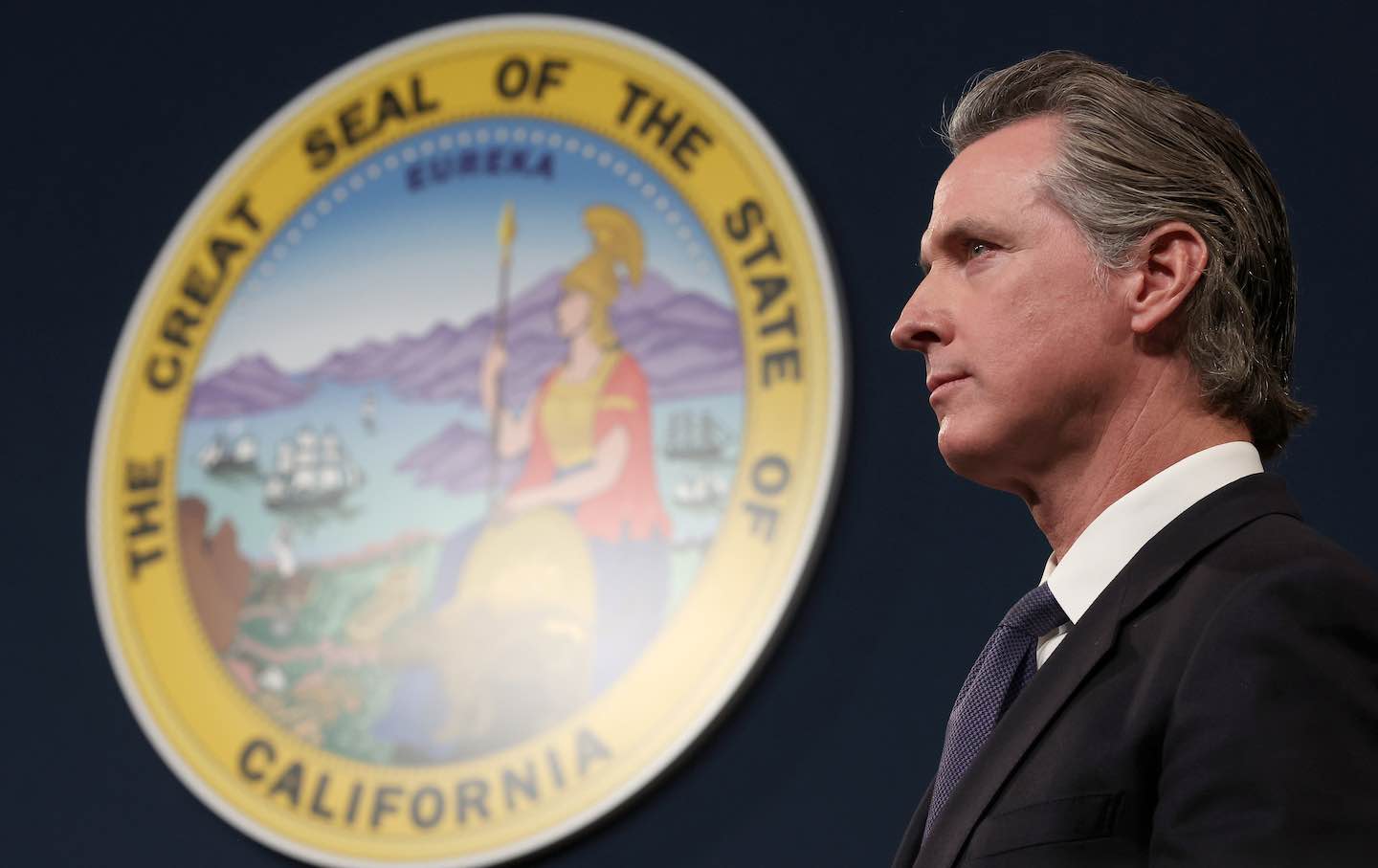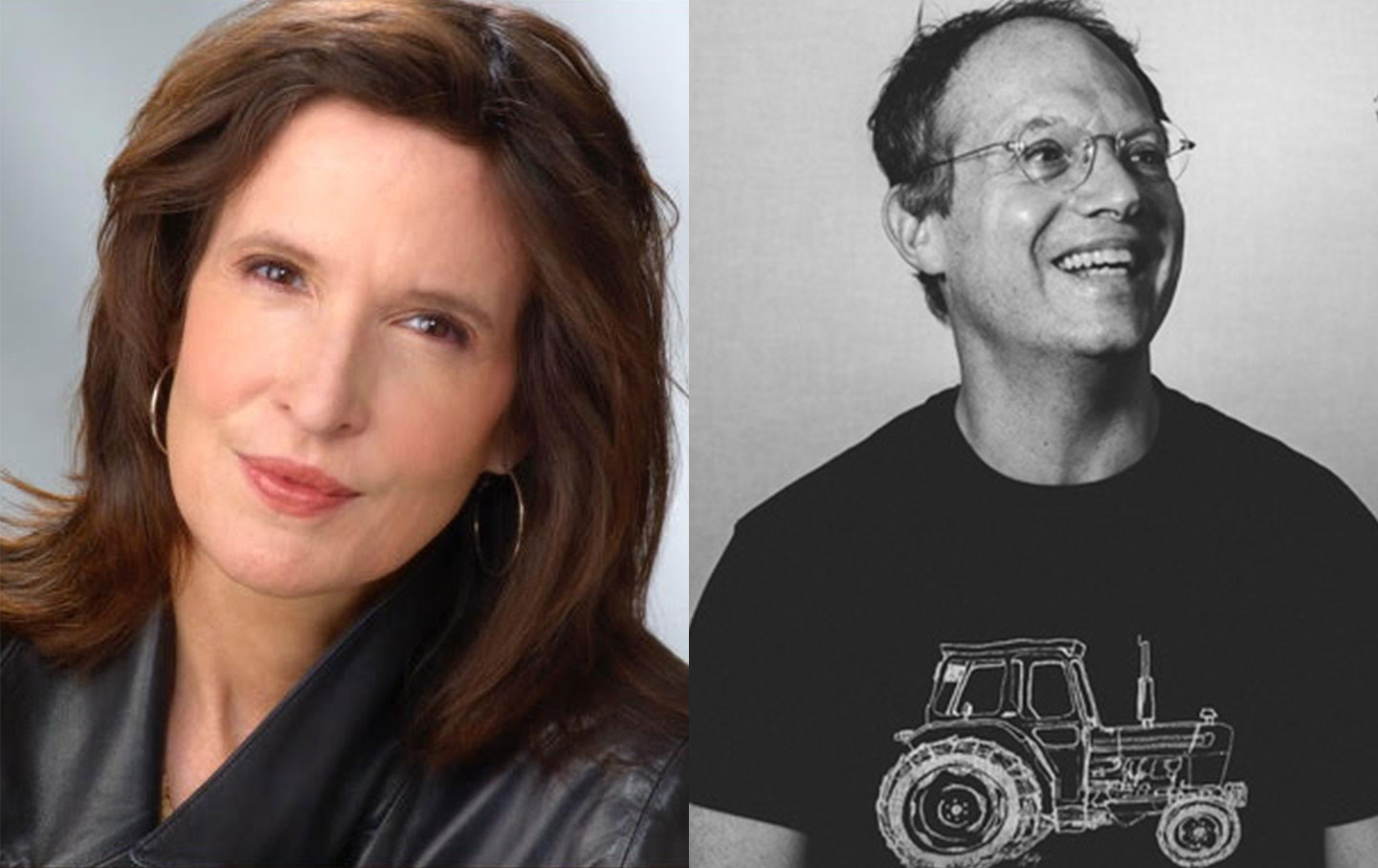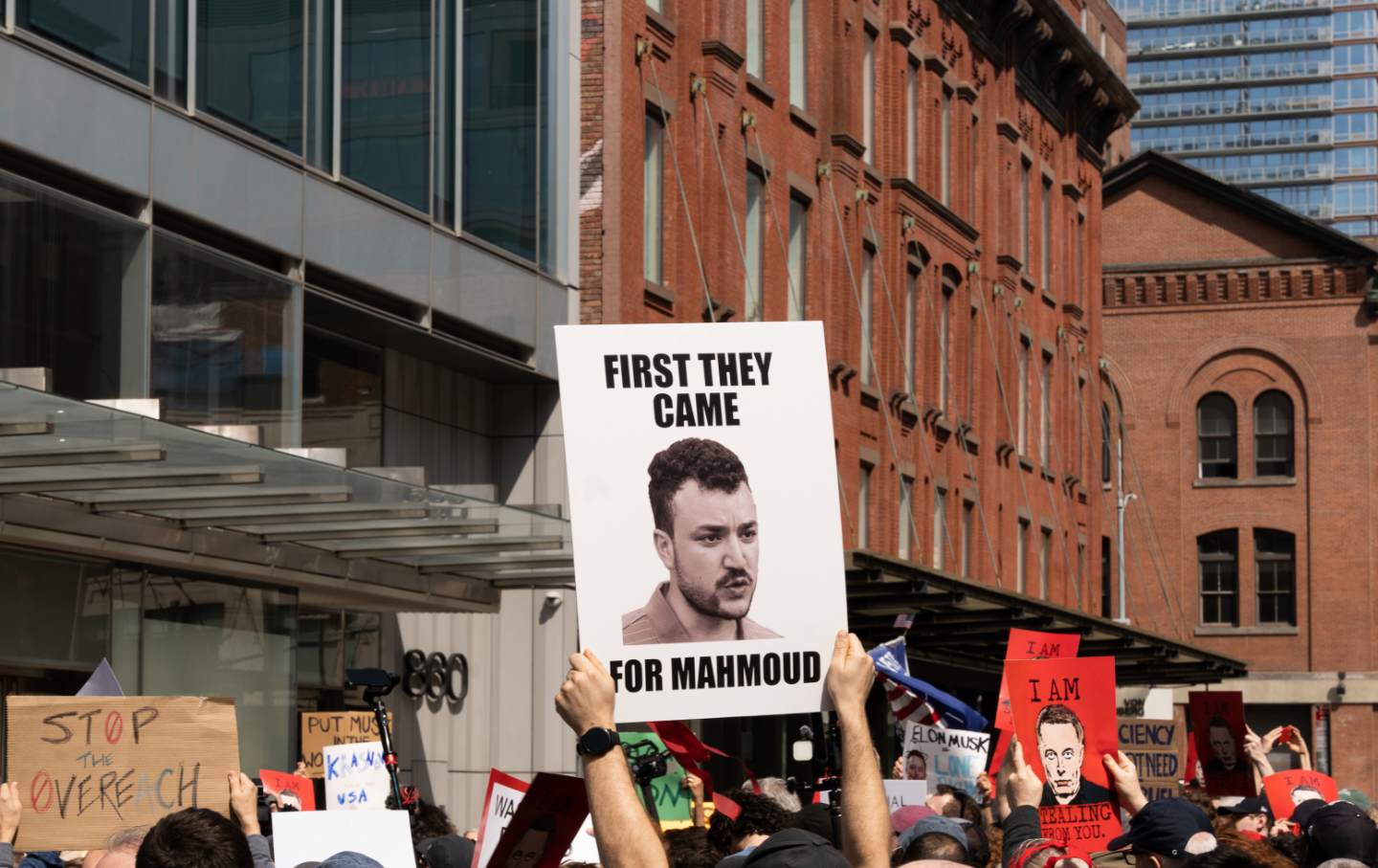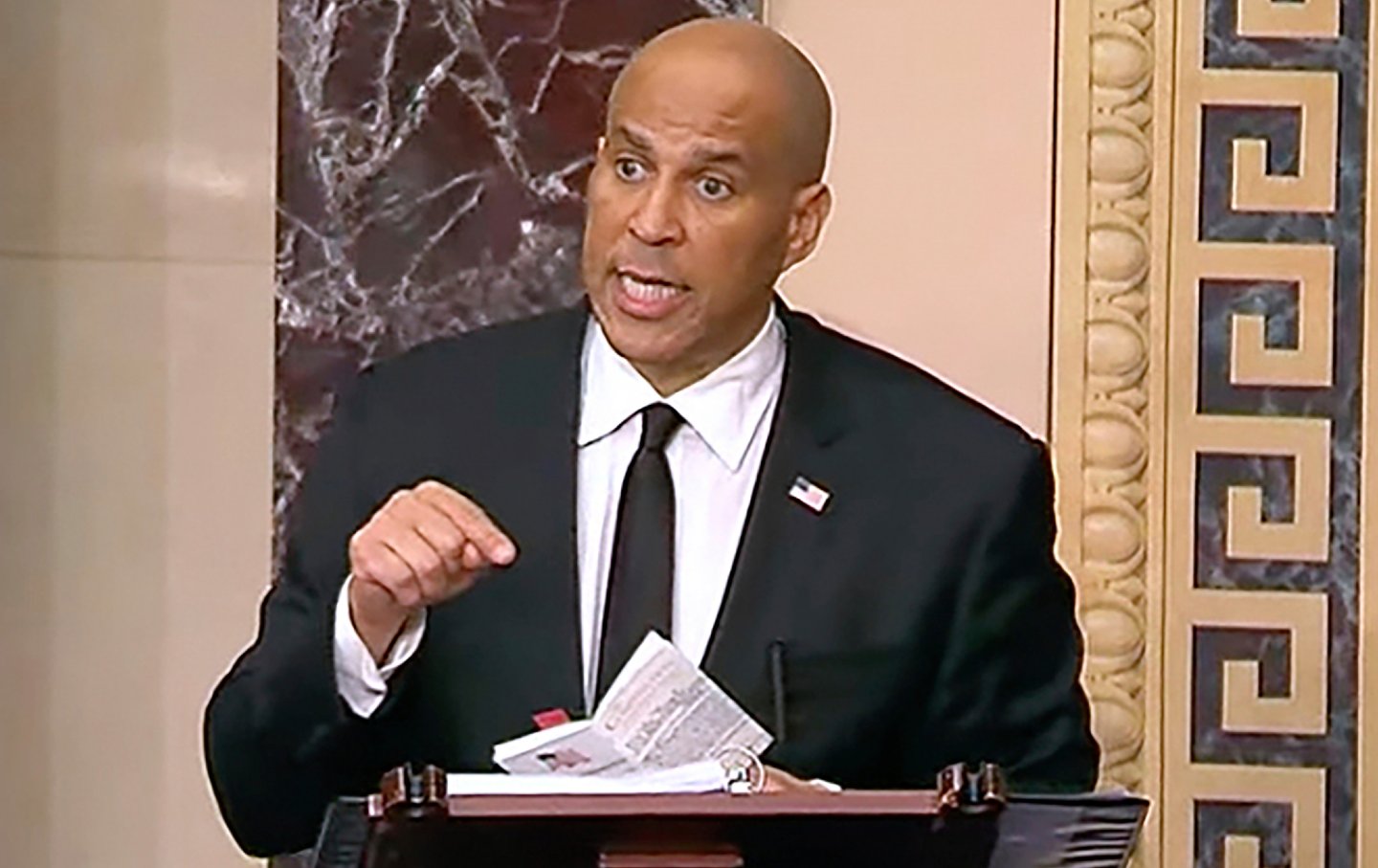She’s a 26-year-old social media star challenging a progressive stalwart in a congressional district she doesn’t live in yet. We asked her why.

Kat Abughazaleh.
(YouTube)
Kat Abughazaleh isn’t your typical congressional candidate.
For one thing, she doesn’t live in Illinois’s Ninth District, the place she’s running to represent. She only moved to the Chicago area less than a year ago.
For another, she’s not a lawyer or operative or DC hack, like so many people trying to climb the political ladder. She’s a social media creator. Hundreds of thousands of people watch her videos on YouTube, TikTok, and Blue Sky/X, where she churns out explainers about US politics and takedowns of right-wing media.
Finally, Abughazaleh’s family history defies convention. She’s Palestinian on her father’s side, seventh-generation Texan on her mother’s side, and she comes from a staunchly conservative family—not a combination most people might expect.
Perhaps all of that explains the buzz Abughazaleh created in both legacy news outlets and on social media when she announced recently that she would be mounting a primary challenge against Jan Schakowsky, a Democrat who’s represented the Ninth District since 1999—the same year Abughazaleh was born—and hasn’t had a competitive primary in all that time.
It might also explain the skepticism some of those outlets expressed towards her endeavor. “In an earlier election cycle, a campaign like Abughazaleh’s would have been written off as a publicity stunt,” The Washington Post wrote.
So what’s going on here? Why is Abughazaleh doing this? What, in other words, is her deal?
Fortunately, Abughazaleh is happy to discuss all of these things, as I learned when I spoke to her last week.
Illinois’s Ninth District encompasses parts of Chicago and the suburbs surrounding it, snaking all the way up to Crystal Lake, just over 50 miles north of the city. When I asked Abughazaleh why she was running there specifically, she said, “I think that something should be different. And I want to live in the place that I want to live in.” She added that she was planning to move to the district soon.
Abughazaleh has an issues page on her campaign website, with solid progressive talking points in favor of LGBTQ+ rights, public education, a single-payer healthcare system, gun control, and Social Security expansion, among other things. But she is explicitly not challenging Schakowsky over policy. She’s previously called Schakowsky “a good congresswoman” with a “pretty great track record on her voting.”
So why primary someone that you say has done a great job?
“The main criticism I have of her is that she is in Democratic leadership, and I think that if your party is not aligning with your values, which, based on her voting record, it isn’t, you need to be more outspoken,” she said.
This might seem like sketchy reasoning to some. But it resonates with the existential political climate that Trump 2.0 has generated. America is freefalling into oligarchy; a genocide funded by United States taxpayers is still being waged in Palestine; about half of Americans are living paycheck to paycheck; and the so-called opposition party is capitulating to Trump far too often. In that environment, Abughazaleh seems to be saying, why not give a young freelancer from out of town a try? It’s not like the status quo is working for anyone.
Before her campaign, Abughazaleh said, she didn’t have any serious yearning for elected office. As a child, though, her grandmother, a deeply connected Republican operative, told her that she might become the first female president. (Abughazaleh told Rolling Stone she inherited the mink coat her grandmother wore to Ronald Reagan’s inauguration.) “The grandkids would joke, ‘I’m gonna tell Grandma you’re a communist!’ Like, we were Reagan Republicans,” Abughazaleh recalled.
After a move to Tucson during her late teens, where Abughazaleh says she saw poverty for the first time, she began to shift politically. By the time she graduated from George Washington University in May 2020 with degrees in international security and journalism (with a focus on “atrocity, genocide, extremism, all that fun stuff”), she was solidly on the left.
In one breath, Abughazaleh described to me the events from that point on that led to her candidacy.
“After graduating, I got a job as a media researcher at Media Matters, and I loved it, and I watched Fox News every night for four years. Elon Musk sued [Media Matters] in November and then a few months later, they had to lay 12 of us off,” she explained. “I figured ‘I can get a job easier.’ So I was like, ‘If it has to be someone on my team, make it me.’ I lost my job, worked with Mother Jones and Zeteo. Haven’t had health insurance since last May, and now I’m running for Congress.”
“Oh, and I moved to Chicago in between all that,” she finished.
She said that what compelled her to run was feeling that many Americans are having right now—that no one is going to step up, that it’s looking like that for the most part, there will be no noble acts of resistance from the Democrats to stop the Trump administration’s takeover of the government. “I was just like, ‘This is so stupid. Why are we not doing anything?’ And I got sick of waiting around for someone else to do something,” Abughazaleh said. “The strategy that Democratic leadership has right now is ‘we’ll sit back, and then everyone will hate Republicans by 2026 and then we’ll win the majority, and then it’ll be good.’ And that’s not the way to beat them. Fascists fucking love it if you just sit back and let them work.”
Abughazaleh has raised $350,000 so far, according to her campaign. The average donation amount is $35, with 10,945 total donors. (About nine in 10 of those are from outside the Chicago area). She’s also had 1,000 volunteer signups.
She said she’s shaping her campaign to be less like a political “vanity project” (her words) and more like a community building project that can do some good whether she wins or not. The first campaign event she held required attendees to bring period products that were then donated to the Period Collective in Chicago. She said campaign funds could also go to events like a clothing swap, a craft club, a banned book drive, LGBTQ+ pride celebrations, and printing “know your rights” flyers to distribute to local college students.
Abughazaleh also said she wants to run “the most accessible campaign in American history”—meaning that she’s ready and willing to listen to people’s thoughts about her campaign, and will pivot based on the responses she gets. She’s already drawn some heat for her announcement that she wouldn’t run any ads on cable news channels. People warned that the campaign risked missing out on a chance to reach large numbers of older voters whom Abughazaleh will need to win. She told me that her campaign “will be prioritizing our mutual aid and direct action efforts over cable ads. But we want to adapt to the feedback that we get.”
Abughazaleh is also trying to learn more about local issues directly from voters, including at an open hours she held at a café over the weekend and her first campaign event. “If you couldn’t tell I’m kind of an extroverted person.… if I’m talking to someone on the campaign trail, especially, I’m just like, ‘What do you care about? What are you worried about? Like, tell me everything,’” she said. I asked what issues had come up at the café. “We got some very wide-ranging questions about tariffs,” she said. “We talked a lot about unions. I had a guy that’s a union rep come in. We talked about the best way to help out union leadership versus members, different movements that are going on, various strikes that might be on the horizon, strikes that are happening now. We talked to someone who came in to express concern about cyclist safety because two cyclists were killed in Skokie just in the past year.”
She said she wants to “reimagine constituent services and make them as accessible and as useful as possible.” She gave examples such as installing a chat service instead of phone calls, citing long hold times and full voicemail inboxes, and having someone dedicated to doing things like sourcing legal services for people who are disappeared by ICE in the district.
Even though policy isn’t the driving force behind her candidacy, there is one issue that has clearly influenced Abughazaleh’s frustrations with the Democratic Party: Palestine. When she covered the Democratic National Convention last summer, she was, to her knowledge, the only Palestinian American creator invited and credentialed.
There, she slept on concrete outside the United Center with other demonstrators after hearing that the DNC would not allow a Palestinian American to speak onstage (she credits one unnamed DNC official for preventing the cops from being sicced on the group). When Abughazaleh talked to campaign surrogates in the convention center, she told them, “Look, this isn’t some gotcha, but you do need to talk about Gaza. A lot of people care about this, and it’s not because they’re terrorist sympathizers. It’s because they can barely afford to exist, and their tax dollars are being used to indiscriminately kill civilians.”
Popular
“swipe left below to view more authors”Swipe →
“I wasn’t even a member of the uncommitted movement. I was just a Palestinian American that wanted to belong in this party,” Abughazaleh said.
It’s these experiences, along with her history as someone who has had to follow politics “on a microscopic scale,” that Abughazaleh thinks will prepare her for Congress.
“Following every single bit of the news and seeing what matters to the GOP and what matters to the Democratic Party…that basis of analysis is really helpful. But also, because my specialty is analyzing and criticizing right-wing media, I know how they think. I think a lot of the Democratic Party doesn’t know how to do that,” she said. “We are in an emergency, and this is my jam. My background is fighting the far right. Like I’ve said, I know how they think. I know how to beat them, and I can put up a fight. I think people are looking for a fighter, and I am nothing if not that.”
When I asked Abughazaleh how she would respond to those who are wary of how she’ll be able to better represent them than Schakowsky, someone who was born and raised in Illinois and has been fighting for progressive issues for decades, she responded, “Talk to me. I will meet with anyone in the district, anywhere, anytime.”
Abughazaleh also encouraged other people to launch a campaign too—even against her. “The Democratic Party has felt entitled to our votes for too long, and just because someone is an incumbent doesn’t necessarily mean that they should stay the incumbent,” she said. “We live in a democracy, or we’re supposed to at least.… I say, if you want to run, let me know. I want to help. But also, if you want to run in this race against me, let me know, I want to help.”
As a Gen Z-er whose professional career has consisted of media criticism and social media freelancing, Abughazaleh will not be everyone’s top choice for a candidate, or even someone’s idea of what a politician should be. But as she pointed out, what the Democratic Party is doing now just isn’t working. What’s the harm in trying something else?
“If you think that the status quo is working for you, I’m probably not your candidate. I’m not a fan of the status quo,” she said. “But if you want to see something different, I do too, and I would love to hear what you want to see differently. We don’t have to live like this. And I think we deserve to fight for something better.”
More from The Nation

The California governor was careful not to provoke Donald Trump after the election, but that didn’t stop the president from launching a full assault against his state.

D.D. Guttenplan, Nation editor from 2019 to 2025, returns to his reporting roots as special correspondent and host of a new Nation podcast.

Fascism doesn’t just appear. It must be invited in—and the bipartisan repression of the anti-genocide movement did just that.


















